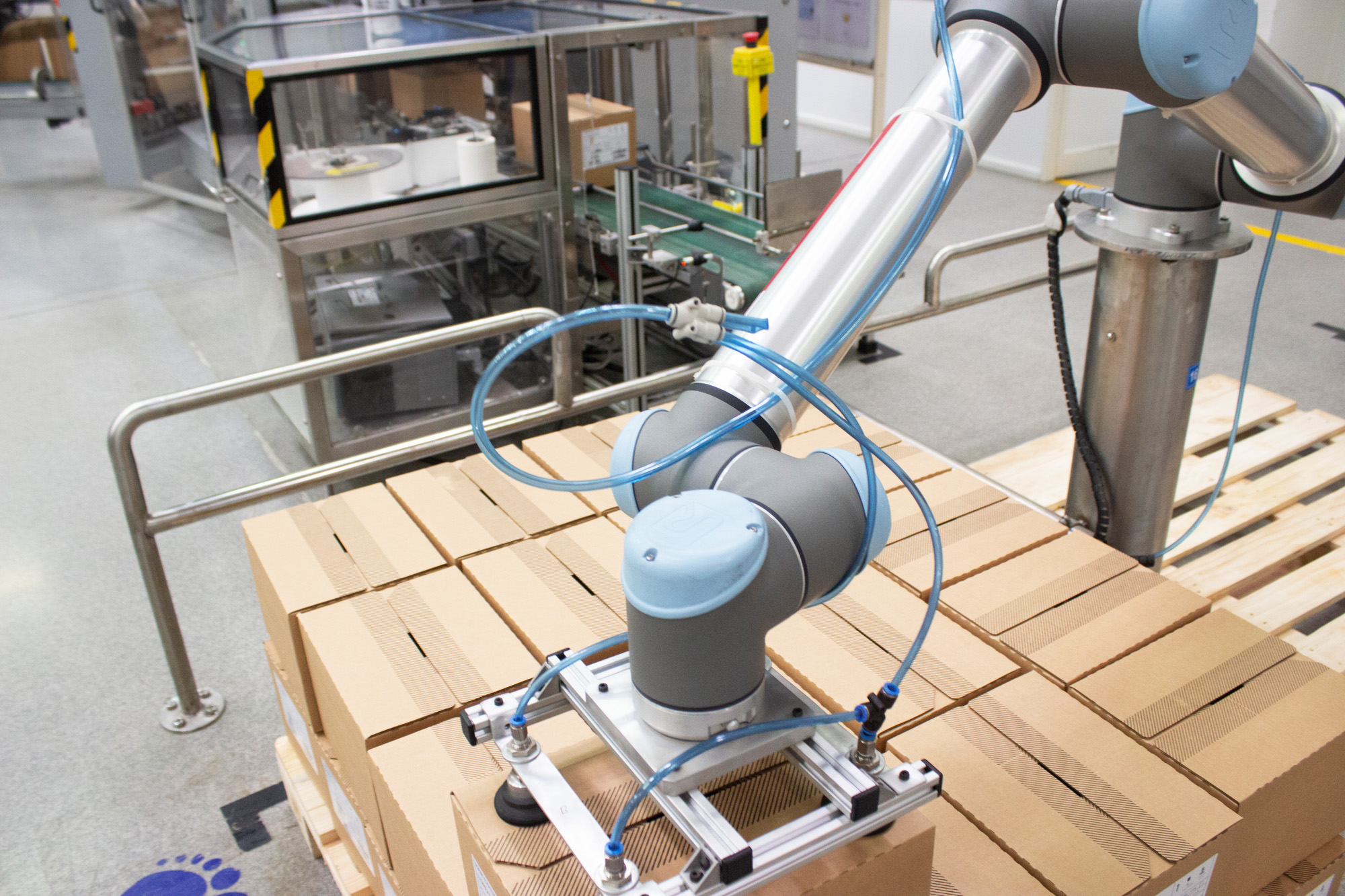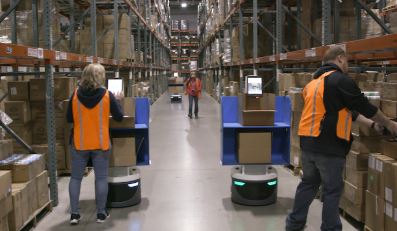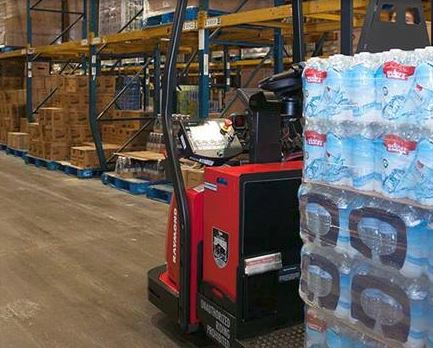The material handling industry is on the cusp of a significant transformation driven by rapid advancements in automation technology. With the potential to streamline operations, improve efficiency, and reduce costs, automation is poised to revolutionize how materials are moved, stored, and managed. This blog will explore the potential for automation to take over the material handling industry and how it can bring about unprecedented change.
With the potential to streamline operations, improve efficiency, and reduce costs, automation is poised to revolutionize how materials are moved, stored, and managed. This blog will explore the potential for automation to take over the material handling industry and how it can bring about unprecedented change.
Proven benefits of automation
- Efficiency and Speed: Automation brings precision and speed to material handling processes. Automated systems can work 24/7 without breaks, ensuring a continuous flow of materials. This translates to reduced processing times and improved efficiency, allowing companies to meet tight production schedules and customer demands.
- Cost Savings: While the initial investment in automation systems can be substantial, the long-term cost savings are significant. Better yet, lease the system, and you will normally be cash flow positive from month one. Automation eliminates the need for human labor in routine, repetitive tasks. It reduces labor costs and associated expenses like healthcare and benefits. It also minimizes the risk of errors, which can be costly.
- Safety and Risk Mitigation: The material handling industry often involves heavy lifting, dangerous environments, and repetitive motions, which can lead to workplace injuries. Automation eliminates the need for human workers to engage in these risky activities, thereby improving overall safety conditions and reducing the likelihood of accidents.

- Scalability: As businesses grow, the demand for material handling increases. Automation systems is easily scaled to accommodate larger volumes of materials without extensive retooling or hiring additional staff. This scalability is particularly beneficial in industries prone to fluctuations in demand.
- Data-Driven Decision Making: Automation generates a wealth of data that can be analyzed to optimize processes further. With the integration of sensors and IoT devices (Internet of Things), companies can gain insights into material flow, equipment performance, and inventory levels. This data-driven approach enables informed decision making for process improvements.
- Enhanced Inventory Management: Automation can significantly improve inventory accuracy by precisely tracking the movement and storage of materials. Real-time data updates help prevent overstocking or stockouts, minimizing holding costs and ensuring timely order fulfillment.
- Adaptation to Industry 4.0: The material handling industry aligns with the principles of Industry 4.0, emphasizing interconnectedness, automation, and utilization of data. Automated material handling systems seamlessly integrate with other smart technologies, creating a cohesive and responsive production environment. Industry 4.0 is defined as the integration of intelligent digital technologies into manufacturing and industrial processes. It encompasses a set of technologies that include industrial IoT networks, AI, Big Data, robotics, and automation.

- Customization and Flexibility: Advanced automation technologies, such as robots and automated guided vehicles (AGVs), can be programmed for a wide range of tasks and can adapt to changing requirements. This flexibility allows businesses to easily switch between different materials or processes without requiring extensive reconfiguration.
- Workforce Augmentation: Contrary to the fear that automation will replace human jobs, it often augments the workforce by shifting workers to more value-added roles that require creativity, problem-solving, and strategic thinking. Employees can oversee and manage the automated systems, ensuring smooth operations.
Stay ahead of the game
The material handling industry is on the brink of a transformational era driven by automation. The potential benefits, including improved efficiency, cost savings, enhanced safety, and data-driven insights are too compelling to ignore. As businesses embrace automation, they will gain a competitive edge and contribute to reshaping the industry landscape. It’s not a question of whether automation will take over the material handling industry but rather when and how profoundly it will do so.





Leave a Reply
You must be logged in to post a comment.